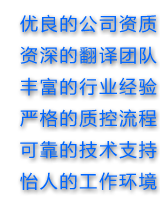东芝会计丑闻带来投资机遇

Hisao Tanaka, Toshiba’s chief executive, gave a 15-second bow on Tuesday as he resigned over a $1.2bn accounting scandal. Mr Tanaka and seven other executives took responsibility for deceptions that started in 2008. Taro Aso, Japan’s finance minister, warned that this could “lose the market’s trust”.
东芝公司(Toshiba)社长田中久雄(Hisao Tanaka)周二因12亿美元的会计丑闻引咎辞职时鞠躬15秒表示悔悟。他和其他7名高管为始于2008年的欺骗行为承担了责任。日本财政大臣麻生太郎(Taro Aso)警告称,这可能“丧失市场的信任”。
Mr Aso is right that the debacle at one of Japan’s leading industrial conglomerates, on paper a leader in corporate governance reform, is serious. Together with the $1.7bn fraud exposed by Olympus’s chief executive Michael Woodford in 2011, it suggests that Japanese companies are prone to manipulating their accounts. But foreign investors should not give up and go home.
麻生太郎说得没错,作为日本主要的工业集团之一,东芝发生的丑闻很严重——东芝名义上还是企业治理改革的领军者。加上2011年奥林巴斯(Olympus)首席执行官迈克尔伍德福德(Michael Woodford)曝光的17亿美元欺诈,这表明日本公司很容易操纵账目。但外国投资者不应放弃而打道回府。
The reverse is true. Here is an opportunity — whether to short shares in companies that will be struck by scandal next, to buy those that will be forced to change their ways, or to do both these things in turn. Japan is an imperfect market and its slow, bumpy, yet inexorable progress towards cleaning up its corporate act provides a target.
正好相反,这是一个机会——无论是做空接下来将遭受丑闻打击的公司,还是购买那些被迫改变做事方式的公司的股票,或者依次采取这两种策略。日本是一个不完美的市场,它在清理企业行为方面缓慢、崎岖但不可阻挡的进程提供了投资目标。
Japan is not unique in any of this, despite a succession of scandals over the past two decades at Yamaichi Securities, Kanebo Nikko Cordial, Livedoor and others. The US was a pioneer with Enron and WorldCom in the early 2000s, and companies in many countries understate losses, misprice contracts and overstate revenues.
日本绝非唯一爆发会计操纵丑闻的国家,尽管在过去20年里,山一证券(Yamaichi Securities)、嘉娜宝(Kanebo)、日兴证券(Nikko Cordial)、活力门(Livedoor)以及其他公司接连爆发了丑闻。美国在本世纪初率先曝出安然(Enron)和世通(WorldCom)的丑闻,许多国家的公司低报亏损,虚报合同金额并夸大收入。
Managers at US or European companies will also groan in sympathy at the pressure Toshiba’s executives felt when faced with “challenges” from their head office to squeeze out higher profits at results season. At Toshiba, they responded by cooking the books, helping the bosses to hide the damage done by the 2008 financial crisis and the 2011 Fukushima earthquake.
在财报季,东芝高管们面对总部要求挤出更多利润的“挑战”而感到的压力,美国或欧洲公司的经理们也会感同身受。在东芝,他们的对策是粉饰报表,帮助老板隐藏2008年金融危机和2011年福岛地震造成的损失。
The difference in Japan is that losses get handed down across generations, hidden on behalf of previous bosses. There is no such thing as the kitchen sink— the grand writing-off of underperforming divisions and old problems by a new chief executive, publicly ditching the errors of his or her predecessors instead of inheriting the burden.
日本的不同在于,亏损一代代往下传,后继者帮前任老板隐藏亏损。日本没有“厨房水槽”之类的东西——即新任首席执行官大举清理表现欠佳部门和老问题,公开摆脱其前任的错误,而不是继承这些负担。
The first thing Norio Sasaki should have done when he became Toshiba’s chief executive in 2009 was expose his predecessor, Atsutoshi Nishida, under whom the deception started. After all, the two were rivals, disliked each other, and even squabbled at a 2013 press conference to announce that Mr Sasaki was stepping down to become vice-chair. LINK TO SQUABBLING?
在2009年出任社长的时候,佐佐木则夫(Norio Sasaki)本应做的第一件事是曝光开始欺骗行为的前任西田厚聪(Atsutoshi Nishida)。毕竟,这两人是竞争对手,彼此讨厌对方,甚至在2013年宣布佐佐木则夫卸任社长、担任副董事长的一场记者招待会上还发生了争吵。
But even with a motive, a weapon, and an opportunity, Mr Sasaki refused to wield the knife, instead taking on and expanding the deception. One obstacle was that Mr Nishida had become chairman and was looking over his shoulder — in Japan, the old boss never quite departs. Mr Nishida was an adviser to Toshiba and Mr Sasaki a senior figure on its board until this week.
但即便有动机、有武器也有机会,佐佐木则夫还是拒绝拿起刀,而是接过并扩大了欺骗行为。一个障碍是,西田厚聪已经是董事长,关注着佐佐木则夫的一举一动——在日本,旧日老板从来不会完全离开。直至本周前西田厚聪还是东芝的一名顾问,而佐佐木则夫是副董事长。
Japanese companies also prize loyalty and social cohesion. “There are life-long relationships between superiors and juniors. You often place your loyalty for the whole of your career with the person who showed you around when you first entered the company,” says Simon Wong, a visiting fellow at the London School of Economics.
日本公司也重视忠诚和社会凝聚力。伦敦政治经济学院(London School of Economics)访问学者西蒙謠(Simon Wong)表示:“上下级之间存在一生的关系。你往往会在整个职业生涯中,对那个在你刚进公司时带你熟悉情况的人保持忠诚。”
As a result, many of the corporate governance reforms encouraged by Shinzo Abe’s government are adopted more in theory than in practice. These include the hoped-for shift from boards being inwardly-turned management committees to bodies on which outside directors play a significant role in strategic decisions, executive appointments and financial oversight.
因此,安倍晋三(Shinzo Abe)政府鼓励的很多公司治理改革,更多是在理论上得到采纳,没有落实。其中包括备受期待的改革:董事会从关注内部的管理委员会,变成外部董事在战略决策、行政任命以及财务监督方面发挥重要作用的机构。
Toshiba is a prime example. It is a blue-chip, bigger and more significant than Olympus, and was regarded as a reform pioneer, appointing independent directors in 2001 and forming board committees, including its easily deceived audit committee, in 2003. But two of the four outsiders were former diplomats, lacking financial expertise, and little really changed.
东芝是一个最好的例子。它是一只蓝筹股,规模和重要性都超过奥林巴斯,而且被视为改革先锋,该公司在2001年任命独立董事,并在2003年成立了董事会委员会,包括轻易被骗的审计委员会。但在4名外部董事中,有两名是外交官,缺乏财务技能,实际上几乎什么都没改变。
The government seeks reform to attract investment and boost growth. But the corporate code introduced in June betrays Japan’s ambiguity — and the doubts of traditionalists such as the Keidanren business federation — about empowering boards.
日本政府推动改革是为了吸引投资并推动增长。但今年6月颁布的公司治理法规暴露了日本在赋予董事会权力方面的含糊不清,以及日本经济团体联合会(Keidanren)等传统人士的质疑。
The code includes an assurance to managers that it “does not place excessive emphasis on avoiding or limiting risk, or the prevention of corporate scandals,” and asks only for companies to appoint “at least two” independent directors. Japan needs to be tougher than that to counter scandals such as those at Olympus and Toshiba.
法规中有一条向管理者保证,“不会过分强调避免或控制风险,或者防范公司丑闻,”同时只要求公司任命“至少两名”独立董事。日本需要采取更强硬的做法,对抗奥林巴斯和东芝这类丑闻。













